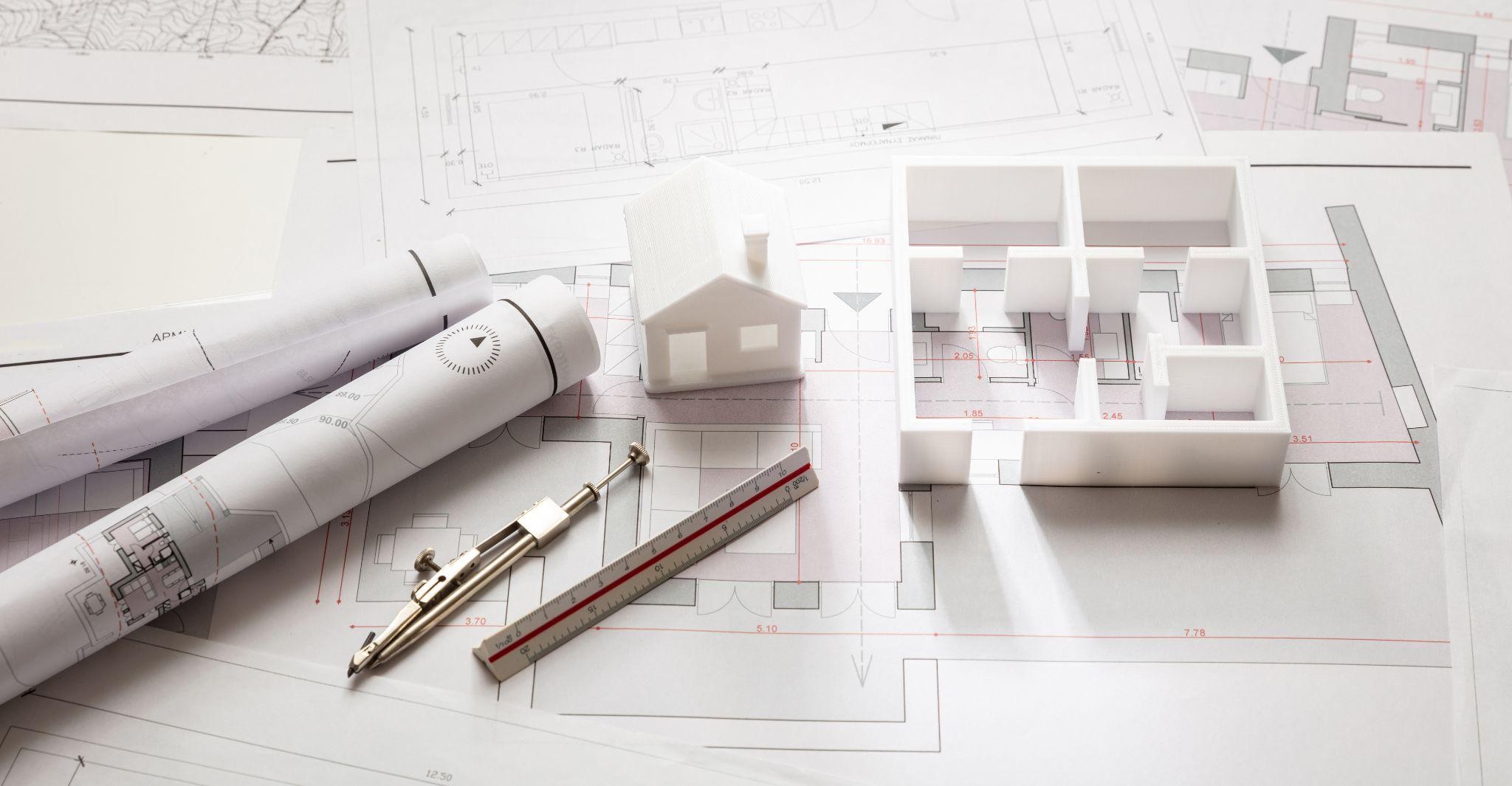
The Blueprint for Profit: Investing in Off-Plan Property
1. Understanding Dubai's Off-Plan Real Estate Landscape
Dubai's real estate market is characterized by its rapid growth, with off-plan properties (property before it has been built or which is still under construction) being a significant draw for investors. In 2024, off-plan sales constituted 63% of total residential transactions, driven by affordability, flexible payment plans, and high return potential. While attractive, off-plan investments carry risks like construction delays or project abandonment. To mitigate these, the Dubai Land Department (DLD) and its regulatory arm, the Real Estate Regulatory Agency (RERA), enforce a stringent legal framework to ensure transparency, accountability, and buyer protection.
Thorough due diligence is crucial, including researching the property's location, growth potential, and the developer's financial standing and reputation. It is essential to verify the developer's registration with DLD and RERA and their market track record. By providing access to project details, payment plans, and developer credentials, RERA enhances transparency, reduces risks, and boosts investor confidence.
2. Securing Your Unit
Market Research and Developer Due Diligence
The initial phase involves defining property requirements, budget, and location. Crucially, buyers must research the developer's reputation and financial stability, confirming their registration with the DLD and a strong market record. RERA's online platforms allow buyers to verify developer registration, safeguarding against fraudulent entities. Engaging a DLD and RERA-registered real estate agent is highly recommended for market insights and representation.
Securing Financing and Verifying the Developer's Escrow Account
A cornerstone of buyer protection is the mandatory escrow account for each off-plan project. All buyer payments must be deposited into this account, ensuring funds are used exclusively for construction. Governed by Law No. (8) of 2007 [11], these funds are monitored by the DLD and managed by RERA-approved banks, with releases tied to verified construction progress. Buyers must verify escrow account details via the DLD website.
Unit Selection and Reservation
After shortlisting properties and reviewing mock-up units, the buyer selects a specific unit. A booking deposit, typically 5% to 10% of the property value, is required to reserve the unit. At this stage, buyers should meticulously review all property details, including floor plan, size, amenities, and location. Concurrently, a booking form and initial Sale and Purchase Agreement (SPA) are signed. DLD and RERA's tools for verifying developer registration and escrow accounts empower buyers with reliable information, fostering a transparent and secure investment environment.
3. Legal Formalities and Payment Structures
The Sales and Purchase Agreement (SPA)
The SPA is the foundational legal document, outlining all transaction terms: property value, unit specifications, payment plan, and project completion dates. It protects both buyer and developer rights. Developers must provide the SPA, executed by an authorized signatory.
The SPA is a private contract, but its mandatory registration via the Oqood system elevates it to legally protected provisional ownership. This dual system provides robust security, preventing fraud and offering legal recourse before completion.
To protect yourself, it's beneficial to be familiar with the procedures and rules outlined in Law No. (19) of 2020, which governs what happens when a buyer fails to meet their contractual obligations for an off-plan property.
Oqood Registration
Upon signing the SPA, the sale must be officially registered with the DLD through the Oqood system (a digital system streamlining off-plan property registration, ensuring all sales agreements are legally documented and recorded). It’s also a temporary, pre-completion ownership record, while the title deed is the definitive legal document issued upon property completion and handover.
The Oqood registration fee is typically 4% of the property's value, plus administrative charges. The developer is responsible for collecting and submitting this fee to the DLD. The SPA must be registered in Oqood within 90 days of signing.
Understanding Off-Plan Payment Plans
Developers offer flexible payment plans to spread financial commitment over construction, lowering entry barriers and attracting investors.
Construction-Linked Payment Structures
Payments are directly tied to specific construction milestones (e.g., foundation, structural completion, handover). This is safer for buyers as funds align with actual project progress. This structure aligns interests, incentivizing developers to maintain timelines.
Key Considerations
Buyers must be aware of potential hidden fees, additional costs, and the risk of project delays extending payment obligations. Some developers may restrict resale before handover.
4. The Developer's Role in Construction and Buyer Monitoring
Developer's Obligations: From Project Design to Delivery
The developer orchestrates the entire project, from concept to handover, involving market research, legal compliance, design, finance, and construction. This includes pre-development planning, land acquisition, project design and financing.
Construction Progress and Quality Control
RERA periodically monitors construction progress. If a project stalls, RERA contacts the developer for rectification. Buyers can track project status via DLD's online services and the Dubai REST app. Buyers have the right to know the project's completion percentage via a DLD-approved consultant's letter. An independent report from a RERA technical auditor is also available for a fee.
Legal Safeguards for Buyers During Construction
The escrow account mechanism (Law No. (8) of 2007) is a fundamental safeguard, ensuring buyer payments are used exclusively for project completion and are protected from creditors. [29] Law No. (19) of 2020, amending Law No. (13) of 2008, significantly improved buyer protection regarding defaults. Developers must now refund 100% of payments if a buyer defaults before construction, and for ongoing projects, retention is proportionate to overall construction progress.
Termination procedures are clarified: developers must notify DLD of default and provide a 30-day notice period for remedy. RERA can cancel project registration if construction doesn't start within six months. Law No. (33) of 2020 established a Special Tribunal for Cancelled Real Estate Projects, ensuring orderly liquidation and refunds via escrow accounts if RERA cancels a project. [34] RERA also holds developers accountable for structural defects post-completion.
5. Handover and Final Property Registration
Property Inspection (Snagging)
As completion of a project nears, the DLD issues a completion notice, giving the buyer 30 days to fulfill handover requirements. A critical step is "snagging", where the buyer inspects the property for imperfections or deviations from the SPA. The buyer compiles a "snag list" of defects for the developer to rectify within a specified timeframe before final handover. This inspection covers structural integrity, electrical, plumbing, and finishes.
Final Payments and Associated Fees
The buyer receives a handover pack with an account statement, requiring clearance of all outstanding balances and final payments as per the SPA. This includes final instalments and any late payment fines.
Miscellaneous charges at this stage include:
● DLD registration fee: 4% of property value.
● Outstanding Oqood fees: Typically 4% of original property price.
● Title deed issuance fee: AED 250
● Annual service charges, administration fees, and utility registration
● DEWA utility activation involves registration, knowledge, and innovation fees, plus refundable meter deposits.
Title Deed Issuance and Official Property Registration with DLD
After successful snagging and defect resolution, the developer formally hands over the property. The buyer then registers the property with the DLD, which supervises the ownership transfer. Upon registration, the DLD issues the title deed, the definitive legal document proving ownership.
6. Regulatory Oversight
Buyer Protection Mechanisms and Dispute Resolution Processes
Dubai's regulatory bodies employ a multi-faceted approach:
● Transparency: RERA provides access to project details, payment plans, and developer credentials.
● Licensing and Registration: Developers and projects must be licensed and registered with RERA/DLD, mitigating fraud.
● Escrow Accounts: Secure buyer funds for project completion.
● Advertising Regulations: RERA enforces strict guidelines against misleading advertising, requiring RERA permits and accurate details.
● Dispute Resolution: RERA offers a structured process for complaints, investigation, and mediation, often avoiding lengthy legal battles. A specialized tribunal handles cancelled projects.
● Accountability for Structural Defects: Developers are accountable for structural defects for a specified period post-completion.
7. Conclusion: Empowering Off-Plan Buyers in Dubai
Purchasing an off-plan unit/property in Dubai is a structured process, safeguarded by a robust legal framework and vigilant oversight from the DLD and RERA. From initial due diligence and escrow account verification to SPA registration via Oqood, construction monitoring, and the final handover, every stage prioritizes buyer protection. Legal rules, like required escrow accounts, payments tied to construction progress, and new laws about defaults, show that Dubai is dedicated to having a clear and safe real estate market.
For prospective buyers, thorough due diligence on the developer's reputation and compliance is paramount. Engaging DLD and RERA-registered agents and independent legal counsel for SPA review is highly recommended. Understanding the chosen payment plan and actively using DLD's online services to monitor progress are essential. A comprehensive grasp of Dubai's legal and regulatory framework is the cornerstone for a protected and prosperous off-plan property investment.
